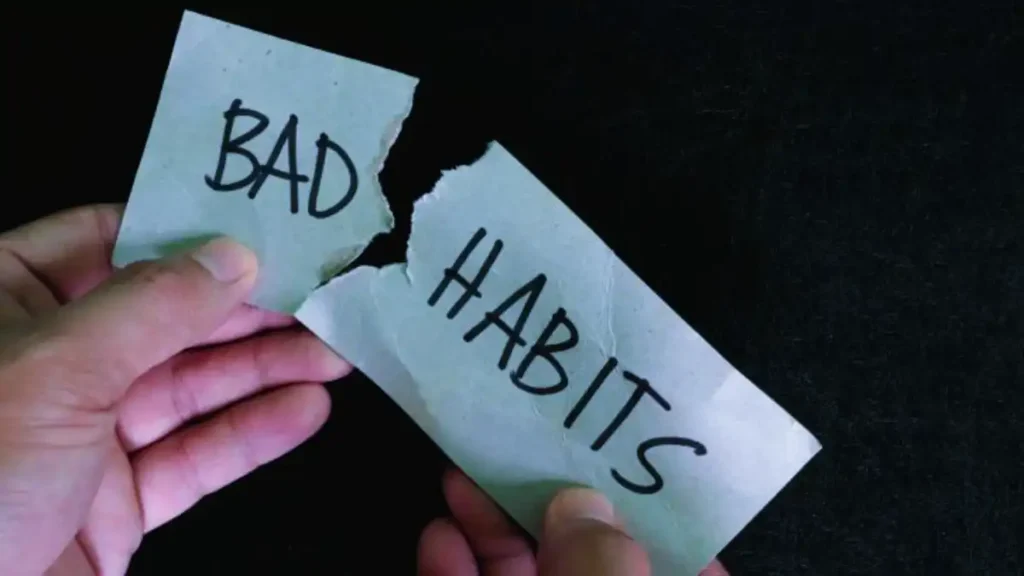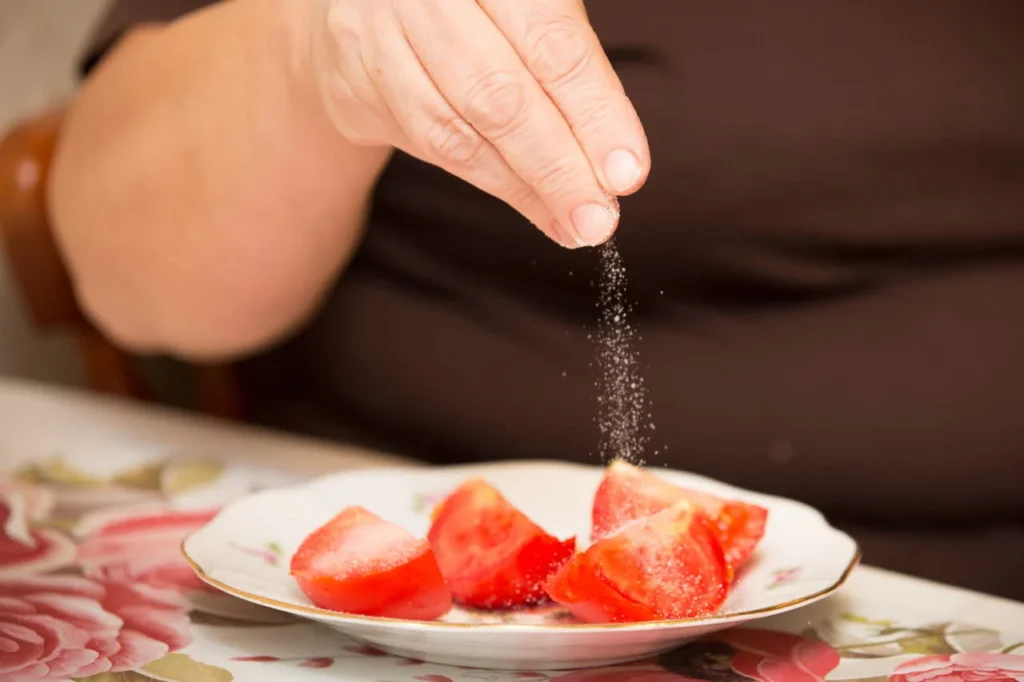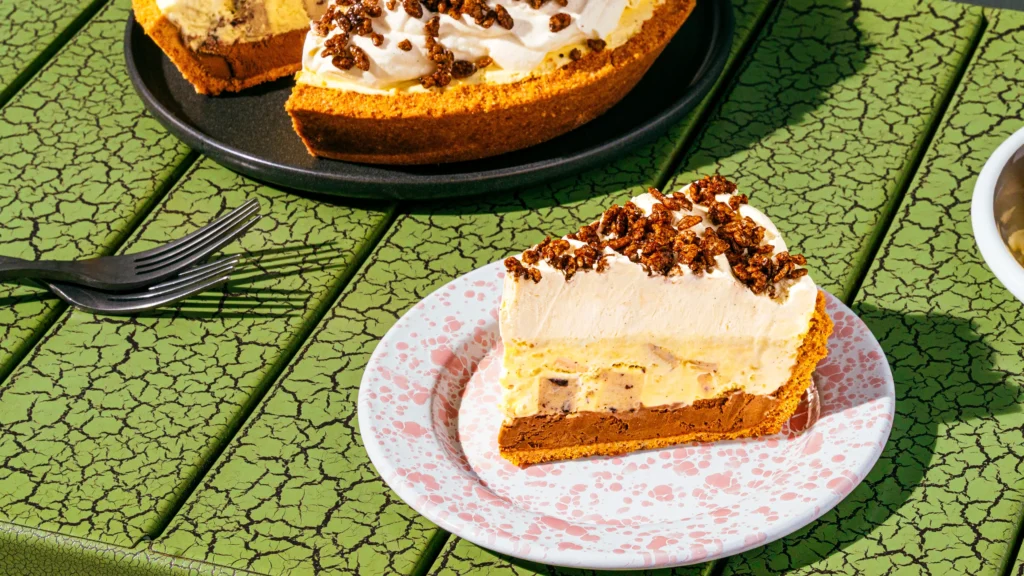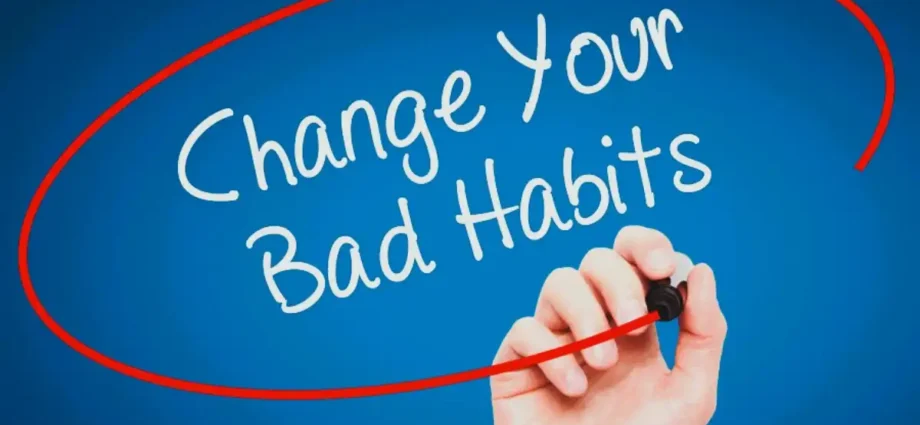We all have many habits in us. Some are good and some are bad. But, some bad habits are not good for our health. Today, we discuss 10 unhealthy habits you need to change for a better and healthier life.
For example, forming new habits gradually and in the same setting makes them more automatic, lowering the mental effort needed to carry them out, according to a 2020 study published in Frontiers in Psychology.

Consider the scenario when you would like to consume more veggies. You could decide to start with lunch and make it a point to eat at least one serving of veggies every day. Lunch serves as your cue to eat more veggies, and you can strengthen this habit after it has been established. This kind of thing helps you break your bad habits.
You can also experiment with habit stacking. This creates a new habit on top of the one you currently have. Assume that you would prefer to sip water first thing in the morning. You might do this in addition to your regular morning teeth-brushing routine. As such, you will drink a glass of water after brushing your teeth.

Another way to break unhealthy habits is to combine them with two routines: going to sleep and waking up. Getting ready for bed can be your cue to put water in your glass before you go to sleep. You can now sip the water when you get up and see it there. your glass with water at bedtime. It’s there now when you get up, which is your cue to sip the water.
There isn’t a single, ideal method for changing habits. And if you make a mistake—which happens frequently while creating new habits—just pick yourself up and carry on.
10 Unhealthy Habits You Need to Change
1. Not Drinking Enough Water
One of the unhealthy lifestyle habits in 10 unhealthy lifestyle habits is not drinking enough water daily. Since water makes up 60% of your body, it should come as no surprise that drinking water promotes overall health. Maintaining hydration can help you stay motivated, maintain a steady mood, and improve your memory.

Having a healthy fluid intake not only helps your skin stay supple but also improves the function of your muscles and joints and aids the kidneys in removing toxins from your body. It also keeps your body cool throughout the summer.
So, what is the recommended daily intake of water? The National Academy of Sciences estimates that adult women require roughly nine cups of fluid per day, whereas adult males require roughly thirteen. This suggestion counts the fluid in coffee, tea, and other soft drinks toward your fluid needs, in addition to the two and a half cups of fluid from food.

One size does not suit all, thus the best way to find out if you’re sufficiently hydrated is to monitor the color of your urine: If the liquid is bright yellow, like lemonade or straws, you’re probably drinking enough.
2. Eating Late at Night

Eating Late at Night is also one of the unhealthy habits to quit for a better life. Eating dinner later in the evening and close to bedtime may alter how food is handled throughout digestion, particularly the breakdown of fat.
3. Not Getting Enough Exercise
Not getting enough exercise is also one of the bad habits for your health. Exercise promotes better sleep, enhances mental health and reduces the risk of depression and anxiety, sharpens focus and judgment, increases the ability to perform daily tasks, prevents falls, helps control blood sugar, and lowers the risk of developing chronic diseases.

The Physical Activity Guidelines for Americans recommend that all healthy individuals perform vigorous-intensity exercise for at least 20 minutes three days a week or moderate exercise for at least 30 minutes five days a week. They also recommend doing exercises that build muscle at least twice a week.
It’s crucial that you begin where you are and gradually raise the frequency and intensity of your workouts over time.
4. Skimping on Sleep
You know that sleeping too little is unhealthy, so why is it such a huge deal? According to the National Heart, Lung, and Blood Institute (NHLBI), getting too little sleep can lead to many problems. Getting too little sleep is one of the top bad health habits that increase the risk of disease.

It can, first and foremost, weaken your defenses against infections and diseases, deteriorate your judgment and decision-making abilities, and raise your chance of errors or injuries. The NHLBI states that many chronic health conditions, including depression, obesity, diabetes, renal disease, high blood pressure, heart disease, and stroke, are also linked to sleep deprivation.
If you’re dieting, getting too little sleep may make it more difficult for you to lose weight and increase the likelihood that you’ll give in to that sugary temptation the next day. So how many hours of sleep are necessary for you?

The NHLBI suggests that adults get between seven and eight hours of sleep every night, while there is no magic number of hours to sleep and the amount varies with age. It’s critical to pay attention to your body’s signals and make an effort to obtain the recommended amount of sleep for optimal health.
5. Eating Too Much Sodium
Eating too much sodium is also one of the unhealthy lifestyle habits you must get rid of. Foods from restaurants and processed foods are frequently very high in sodium.

Making fresh meals at home is one of the simplest ways to cut back on sodium. Try using herbs and spices instead of salt to enhance the flavor of food cooked at home if you want to reduce your sodium consumption even more.
6. Choosing Foods Because They ‘Sound Healthy’
This is the sixth bad habit in our 10 unhealthy habits you need to change list. Health benefits are starting to appear on food labels more frequently. Should these assertions tempt you, remember that a product’s absence of fat, gluten, or carbohydrates does not necessarily indicate that it is a healthy choice.
For example, fat-free items often contain more sugar than their full-fat counterparts to make up for the flavor that is lost when fat is removed, even though many full-fat options are healthier.

Compare the ingredient lists and nutrition facts panels of different brands in the same food category to avoid falling for a claim on the label that seems too healthy. It’s important to note that some of the healthiest items at the grocery store, such as fruits and vegetables, are unbranded and lack packaging.
7. Eating Lunch at Your Desk
Despite the all too easy temptation to have your noon meal while working, a 2022 study that was published in Appetite discovered a link between eating when preoccupied and a higher body weight. It is one of the bad habits at work that you should avoid.

Researchers recommend switching off technology and taking a break from work to focus on eating, enjoying it, and identifying when you are starting to feel full.
8. Cooking Everything in Olive Oil
Sometimes olive oil isn’t the ideal option for cooking, even though it’s full of heart-healthy antioxidants called polyphenols and monounsaturated fats. Why? Because olive oil has a lower smoke point than certain other oils (365°F to 420°F is the threshold at which an oil starts to smoke).

When olive oil is heated to its smoke point, the beneficial chemicals start to degrade, and possibly hazardous molecules arise. Therefore, if you’re cooking with olive oil on high heat, don’t use it and use another type of oil.
Everything is good only when it is under limit. Olive oil is good for health but if cooking everything in olive oil then it’s bad eating habits that you should avoid.
9. Skipping Dessert
You might believe that avoiding sweets is a good thing. However, research indicates that feeling deprived can lead to overeating even if you are eating a lot of calories. Restricting access to any food only serves to enhance its appeal.

A single ounce of dark chocolate has 170 calories, while half a cup of vanilla ice cream has 137 calories. So, Skipping dessert is also a bad habit that affects your health.
10. Not Changing or Sanitizing Your Kitchen Sponge Frequently Enough
This is the last bad habit in our list of 10 unhealthy habits you need to change. You might not consider it much, but a 2020 study published in BMC Public Health raises the possibility that your kitchen sponge serves as a haven for germs, mold, and yeast. Some of these bacteria can also make you sick.

Moreover, if you clean the shelves in your refrigerator, kitchen counter, stove, and sink with the sponge, you’re inviting cross-contamination.
It’s important to replace your sponge frequently, ideally every two weeks, and to sanitize it daily by heating it in the microwave for two minutes.
Read also: 10 Surprising Side Effects of Coconut Water You Should Know











